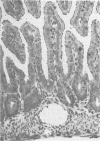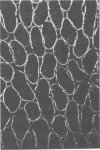Abstract
A Lancefield group D enteric streptococcus was isolated from diarrheic suckling rats that had been inoculated orally with stool from a diarrheic human. After oral administration of the organism to other suckling rats, diarrhea was reproduced, and the enteric streptococcus was reisolated. The brush border of small intestinal villi in affected animals was coated with numerous adherent gram-positive cocci. The organism was identified as Enterococcus hirae by a battery of biochemical tests. These and previous studies indicate that certain enterococci should be considered as etiologic agents of diarrheal disease in neonatal animals.
Full text
PDF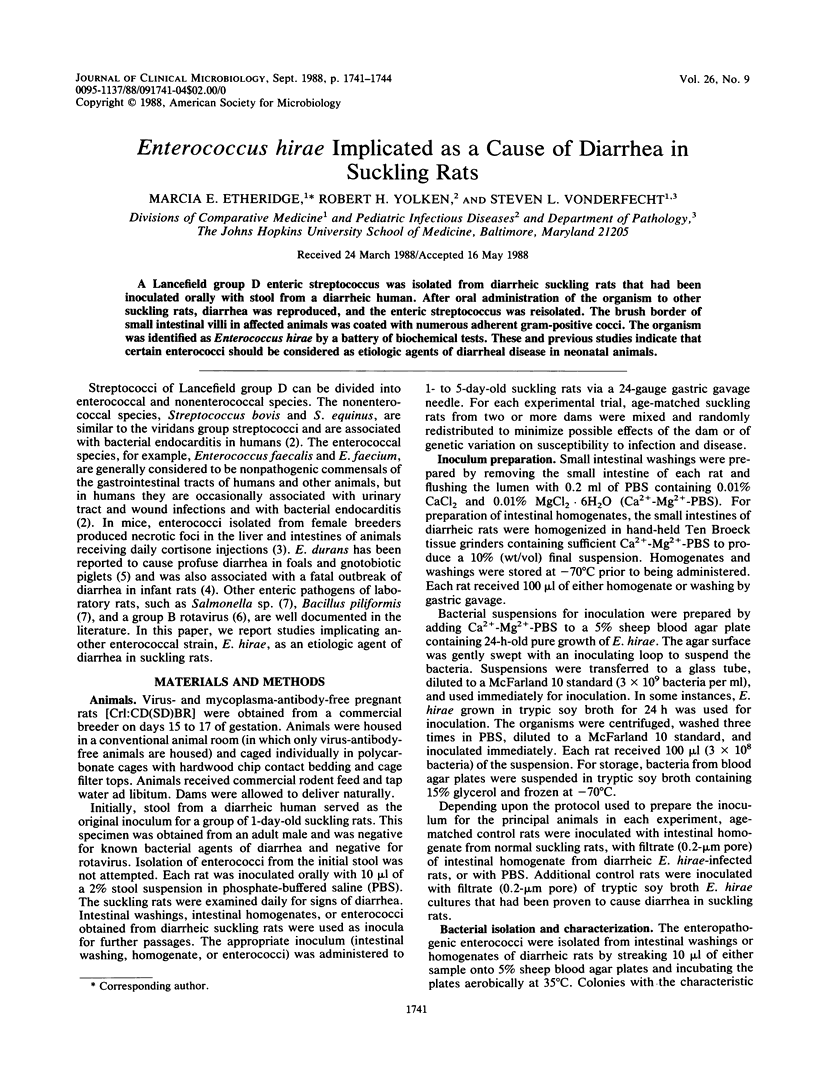
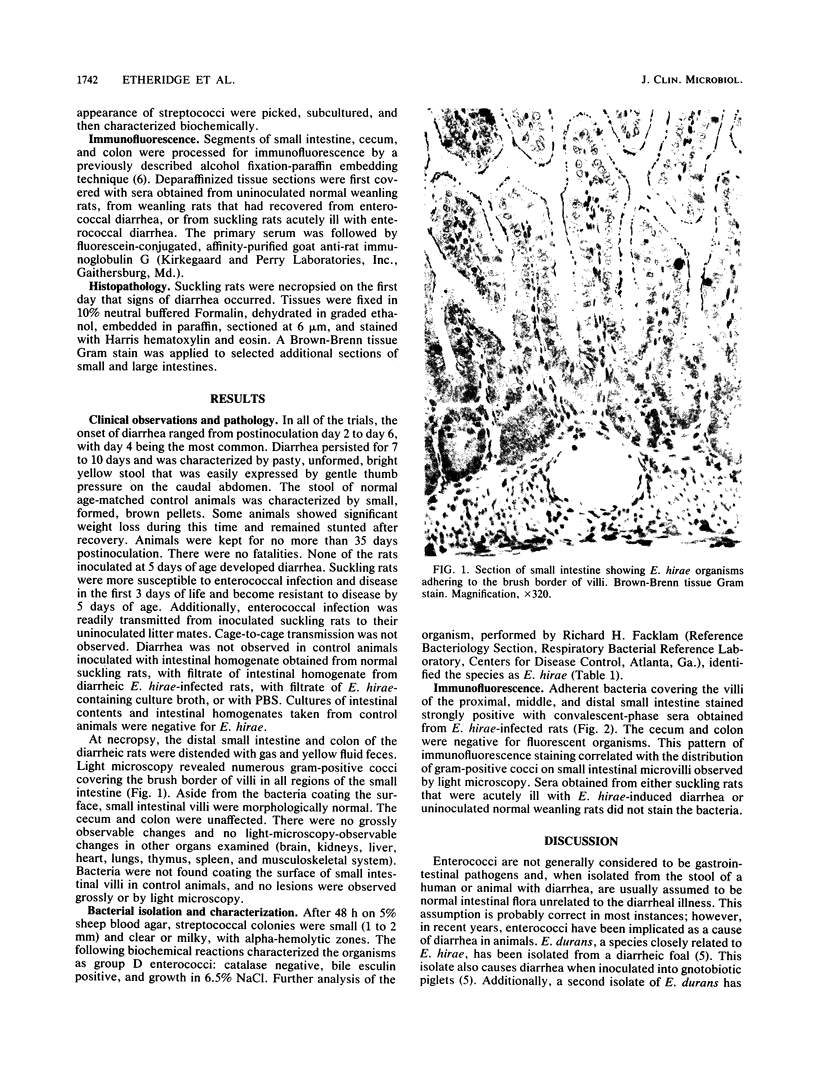
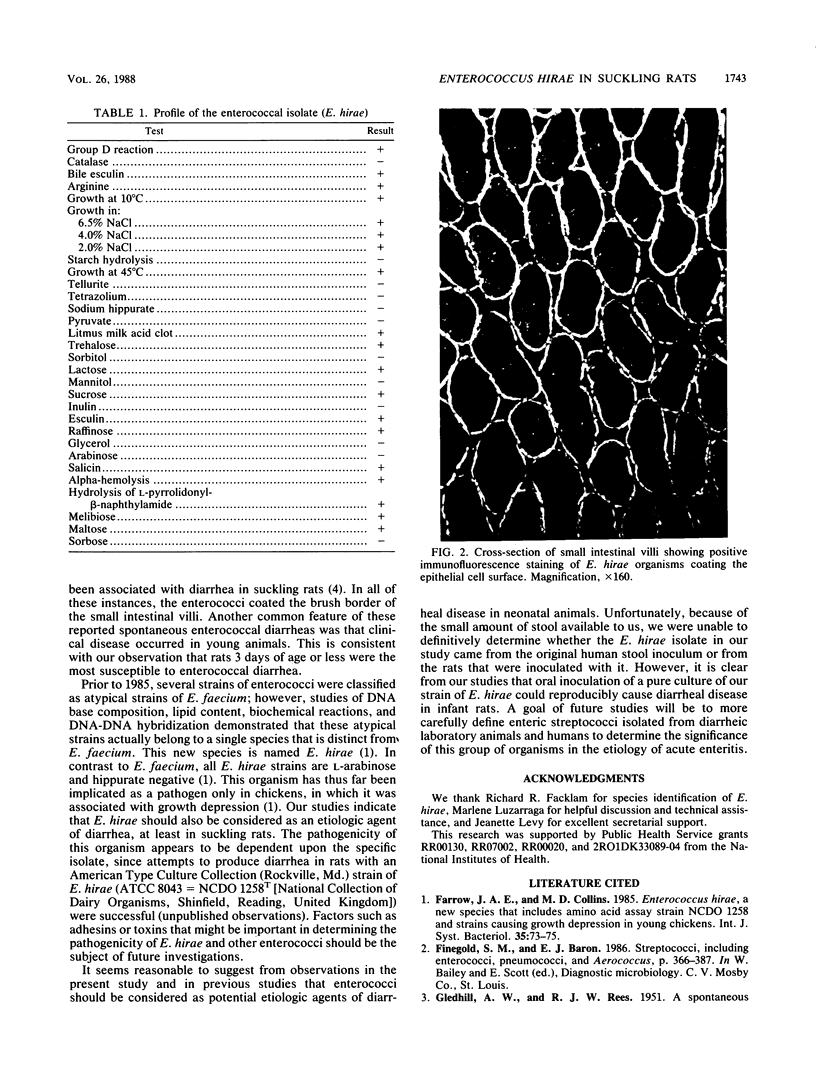
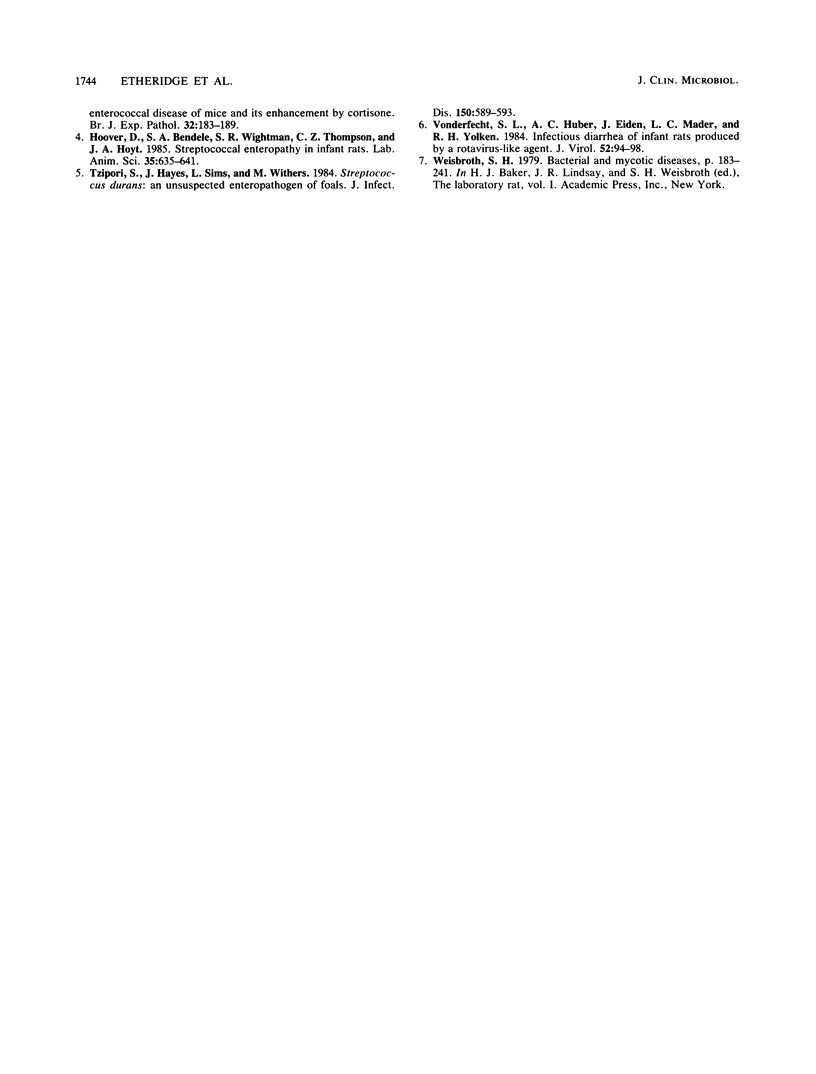
Images in this article
Selected References
These references are in PubMed. This may not be the complete list of references from this article.
- Hoover D., Bendele S. A., Wightman S. R., Thompson C. Z., Hoyt J. A. Streptococcal enteropathy in infant rats. Lab Anim Sci. 1985 Dec;35(6):635–641. [PubMed] [Google Scholar]
- Tzipori S., Hayes J., Sims L., Withers M. Streptococcus durans: an unexpected enteropathogen of foals. J Infect Dis. 1984 Oct;150(4):589–593. doi: 10.1093/infdis/150.4.589. [DOI] [PubMed] [Google Scholar]
- Vonderfecht S. L., Huber A. C., Eiden J., Mader L. C., Yolken R. H. Infectious diarrhea of infant rats produced by a rotavirus-like agent. J Virol. 1984 Oct;52(1):94–98. doi: 10.1128/jvi.52.1.94-98.1984. [DOI] [PMC free article] [PubMed] [Google Scholar]




